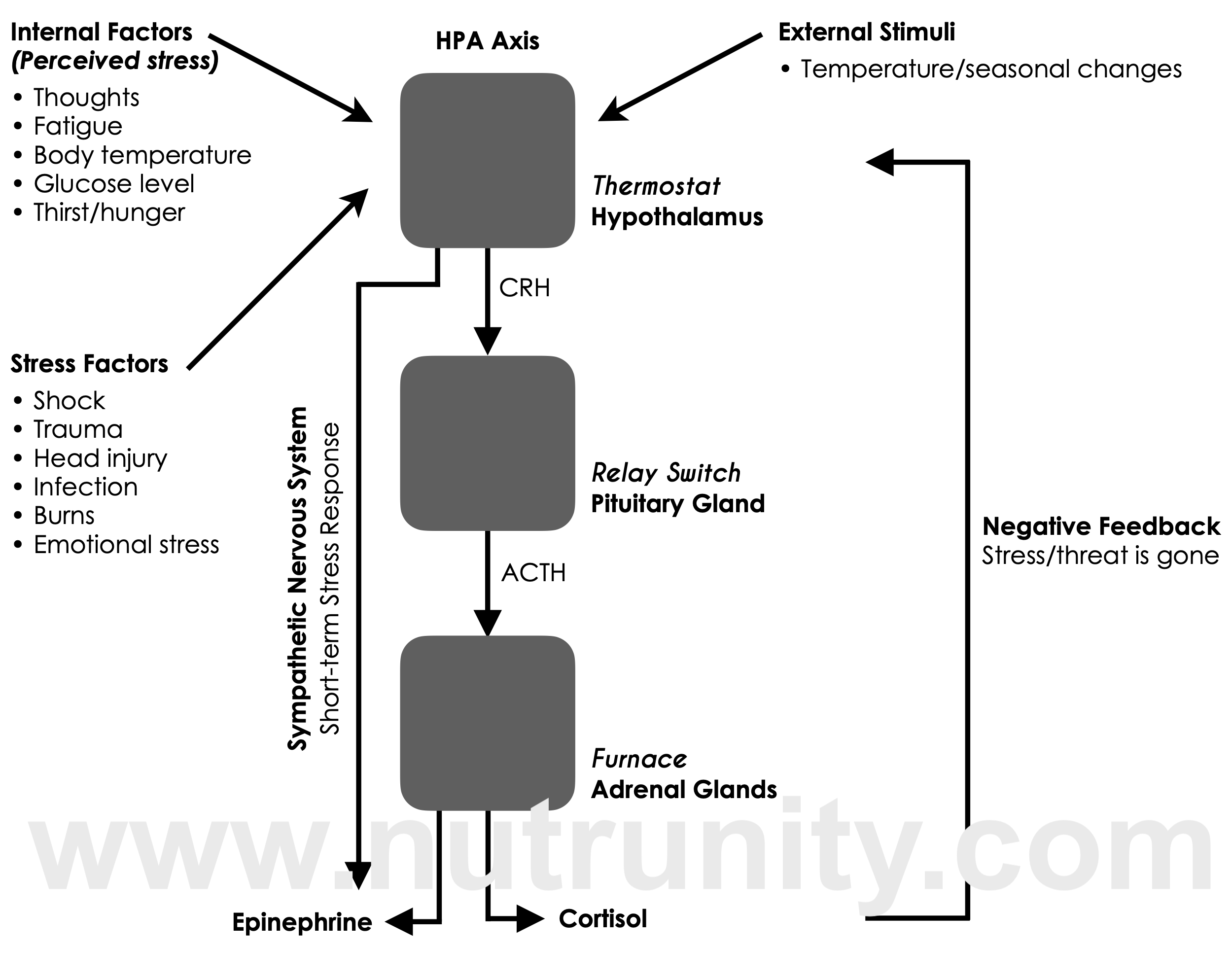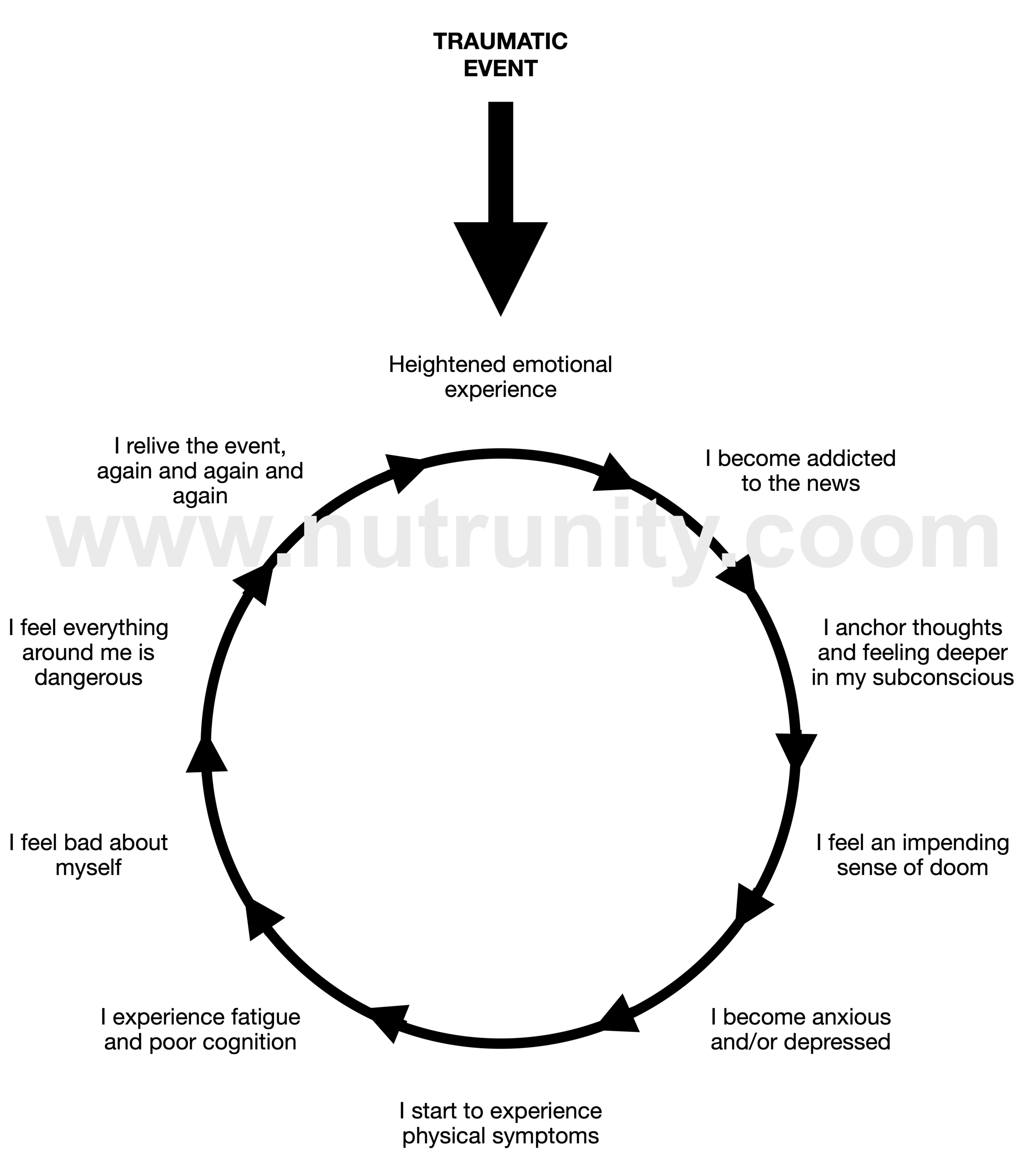Defining trauma and the effect it can have on our health.
Trauma is widely recognised as the event itself. Therefore, the definition of trauma that is used by the modern field of medicine is the ‘event’.
Across the board, there are many different variation of trauma, and especially how it can affect our biology, the neurological systems of the body, and our health on the long-term. The way I would like to define it is response generated by then event, any time after the event itself. I have discussed this extensively in many blogs and published articles, our response to the traumatic event — or the way you perceived the heightened emotional experience or event — any time thereafter will generate the same physiological response. You may, therefore, relive the event itself, again and again, and feel the same sensation. For example, your heart may be pounding in your chest, your blood pressure may elevated, you may feel dizzy or faint, or even sick in your stomach. You may also cry, your entire body shake, and feel an impending sensation of doom.
Again, it is the perception. What we ‘make’ of the event. When we perceive an event as dangerous, threatening our safety, or even scary, frightening, shameful, this creates alarm systems to go off in our body. The amygdala, the ‘fear’ centre of the brain, which has taken note of the event and how it has affected you, allows for a quick rewiring of the neurological systems (so designed for our survival!), and so changes in brain chemistry and in body, which are adaptive responses to ensure our survival.
The stress response is ignited almost immediately and the release of stress hormones in the bloodstream increases blood pressure, heart rate and blood sugar levels so we can run or fight — activating the sympathetic nervous system: the ‘fight-or-flight’ response.
Want to better understand the stress response?
The stress response will be the same every time. Therefore, ever time you ‘relive’ the traumatic event, you are chronically and repetitively engaging the stress response — over and over and over again, perhaps even every day, as it is the case in people who can’t let go or just don’t know how to deal with the experience itself. For example, seeing someone die or a car crash can brings nightmares for days or weeks to come, perhaps even longer.
The feelings associated to the event can be made worse by being addicted to the news. Similar experiences — of simply the stress generated by only watching the news — can bring similar responses. You may relive the even itself, again and again, even though you have worked hard to forget it.
So watching the news every day is not suitable to your recovery and will not help you surmount the emotions associated to the traumatic event — because it will engage the state of ‘fight-or-flight’ every single day, every single time. In other words, because you are watching the news, you are perceiving the events of the day as dangerous, that everything around you is a danger to your safety.
Have you ever watch the news about something great happening in the world? Possibly… However, it was cleverly drown in a tsunami of bad news.
So, watching the news can become an addiction, an addiction that you may think help you to think that it is always worse elsewhere than at home. But when you have experienced trauma, the picture is very different. It is bad elsewhere and it is worse at home — your direct environment!
Every time you watch the news you are rewiring your brain and strengthening those neurological pathways with the repetition of the same type of news you’re hearing and seeing every single day. At the same time, you are anchoring the memories of the events itself, the feelings you have experienced, the entire set of emotions, deeper and deeper in your subconscious.
This is extremely relevant today, especially with the ways the media have driven fear among the population of the world by painting a much darker picture of the 2020 events, making sure that you are anchoring those events deeper in your subconscious so they can then manipulate your thoughts any time thereafter. The design is flawless and works every time. This field of psychology has been studied so well that the model is now used and reused whenever needed. If we imagine the trauma anchored in the children of the word today. Even in 20 or 50 years time, the memories will still be there, and watching the news will bring those memories, the trauma, the sensation of impending doom, back to the surface.
This is why for so many people, they can’t let go of traumatic experiences because they are constantly triggered, every day, many times a day. Often, those are also addicted to the news.
Furthermore, they will also spend less time taking part in feel-good activities and may also lose interest in their diet.
This is one way chronic stress impact our health.
The issues arising from the hyperactivation of the HPA axis on a daily basis will lead to conditions that are the leading causes of death, like hypertension (leading to cardiovascular disease), chronic digestive tract problems (IBS, IBD, SIBO, chronic constipation, hyperpermeability of the gut lining (or leaky gut), hypersensitivities to foods and allergies), imbalances in the gut microbiota (leading to a larger production of pro-inflammatory markers, histamine and alcohol, and in the long-term non-alcoholic fatty liver disease), an immune issues (leading to an increase risk of infection and secondary infection, and much longer recovery), as well as an chronic inflammation of the gut due to digestive capabilities being switched off by the sympathetic nervous system (low to no production of stomach acid, low or absent release of digestive enzymes, suppressed liver function, and accumulation of toxins and toxic waste).
Additionally, you may never be in control of your blood sugar, your energy levels, and this directly impacts on the way you feel. You may be tired all the time and unable to think straight, probably forgetting things easily too. For example, you may not remember where you left your keys or you may lose the thread of the conversation and not remember what you wanted to say.
At this point in time, you may experience any one of the most common metabolic disorders under the sun. This also opens the door to cognitive dysfunction, with anxiety and depression at the one end of the spectrum and neurodegeneration on the other, like Alzheimer’s and other forms of dementia.
The list goes on, but the main diseases are:
Heart disease
Cancers
Autoimmune diseases (e.g., IBD, Hashimoto’s thyroiditis, MS, ALS and many more)
Mental health disorders
Neurodegenerative diseases, .


